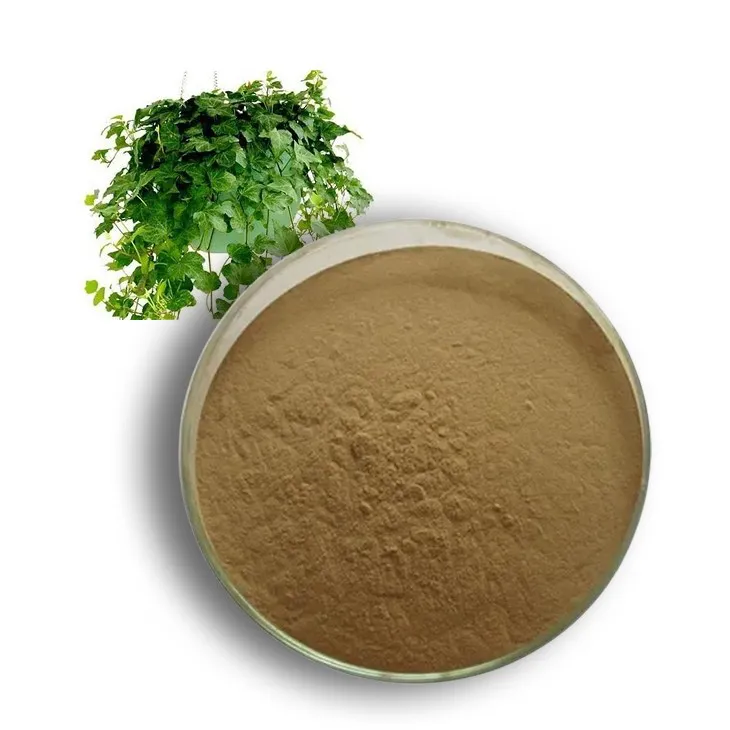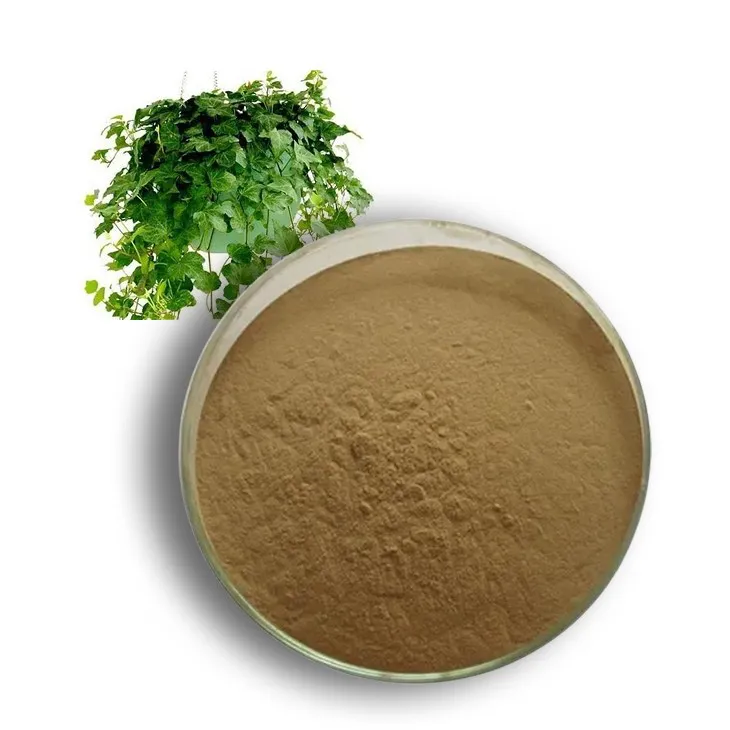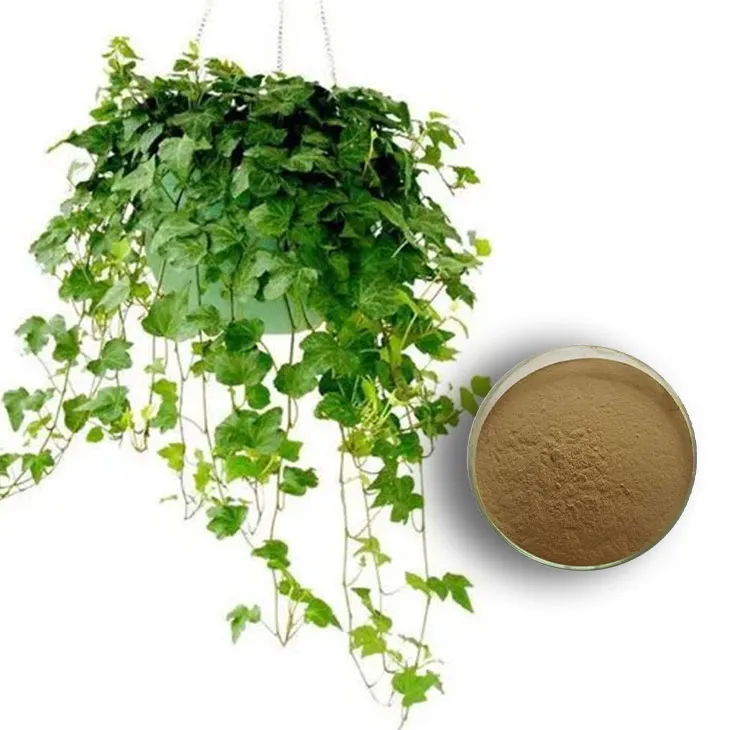- 0086-571-85302990
- sales@greenskybio.com
Ivy Extract: Benefits, Uses and Possible Side Effects
2024-11-12

1. Introduction
Ivy Extract has emerged as a subject of great interest in recent years due to its wide - ranging properties. Derived from the ivy plant, this extract has been used in various forms for centuries. It has found applications in both traditional and modern medicine, as well as in the field of skin care. Understanding the benefits, uses, and potential side effects of Ivy Extract is crucial for those considering its use.

2. Benefits of Ivy Extract
2.1 Respiratory Health
One of the most notable benefits of ivy extract is its positive impact on respiratory health. Ivy has been traditionally used to ease coughs and relieve congestion. The active compounds in ivy extract are thought to have expectorant properties, which means they can help to thin and loosen mucus in the airways. This can make it easier for the body to expel mucus, providing relief from coughing and congestion associated with respiratory infections such as the common cold or bronchitis.
Studies have also suggested that ivy extract may have anti - inflammatory effects on the respiratory system. Inflammation in the airways can cause narrowing and irritation, leading to breathing difficulties. By reducing inflammation, ivy extract may help to improve airflow and overall respiratory function.
2.2 Skin Care
In the realm of skin care, ivy extract has shown promise in reducing inflammation. Skin inflammation can be caused by a variety of factors, including environmental stressors, allergies, and skin disorders. Ivy extract contains compounds that may help to soothe irritated skin and reduce redness. It may also have antioxidant properties, which can protect the skin from damage caused by free radicals. Free radicals are unstable molecules that can damage skin cells and contribute to premature aging.
Some skincare products containing ivy extract are marketed for their potential to improve the appearance of acne - prone skin. The anti - inflammatory properties of ivy extract may help to reduce the redness and swelling associated with acne lesions, while its antioxidant properties may help to prevent future breakouts by protecting the skin from oxidative stress.

3. Uses of Ivy Extract
3.1 Traditional Medicine
In traditional medicine, ivy has a long history of use. It has been used in herbal remedies for respiratory ailments in many cultures. For example, in European traditional medicine, ivy leaves were often made into teas or tinctures to treat coughs, bronchitis, and asthma. The preparations were believed to have a soothing effect on the respiratory tract and to help relieve symptoms of these conditions.
Traditional healers also used ivy topically for skin conditions. Ivy poultices were applied to areas of inflamed skin to reduce swelling and pain. The plant was considered a valuable natural remedy for various skin disorders, including eczema and psoriasis.
3.2 Modern Applications
In modern medicine, ivy extract is often used in the form of over - the - counter medications for respiratory problems. These medications typically contain standardized amounts of ivy extract and are formulated to provide relief from coughs and congestion. Some products are also designed to target specific respiratory conditions, such as those caused by allergies or infections.
In the beauty industry, ivy extract has become a popular ingredient in skincare products. It can be found in creams, lotions, and serums. These products are promoted for their ability to soothe sensitive skin, reduce inflammation, and improve the overall appearance of the skin. Additionally, some haircare products may also contain ivy extract, as it may have beneficial effects on the scalp, such as reducing inflammation and promoting healthy hair growth.

4. Possible Side Effects of Ivy Extract
4.1 Allergic Reactions
One of the most important considerations when using ivy extract is the potential for allergic reactions. Some individuals may be allergic to ivy, and exposure to ivy extract can cause allergic symptoms. These can range from mild skin rashes and itching to more severe reactions such as difficulty breathing and swelling of the face, lips, or tongue. People with a known allergy to plants in the same family as ivy (such as poison ivy) may be at a higher risk of having an allergic reaction to ivy extract.
It is essential for anyone using ivy - containing products for the first time to perform a patch test. This involves applying a small amount of the product to a small area of skin, usually on the inner forearm, and waiting for 24 - 48 hours to see if any allergic reaction occurs. If redness, itching, or swelling develops, the product should not be used.
4.2 Gastrointestinal Disturbances
Although less common, some people may experience gastrointestinal disturbances after using ivy extract. This can include symptoms such as nausea, vomiting, and diarrhea. These side effects may be more likely to occur if the extract is consumed in large amounts or if the individual has a sensitive digestive system. If such symptoms occur, it is advisable to stop using the ivy extract and consult a healthcare provider.
4.3 Interaction with Medications
Ivy extract may also interact with certain medications. For example, it may interact with medications that affect blood clotting, such as anticoagulants. There is a concern that ivy extract could potentially increase the risk of bleeding when used in combination with these medications. It is crucial for individuals taking medications to consult their healthcare provider before using ivy extract to ensure that there are no potential interactions.
5. Conclusion
Ivy extract offers a range of potential benefits in respiratory health and skin care. It has a long history of use in traditional medicine and has found modern applications in over - the - counter medications and skincare products. However, it is important to be aware of the possible side effects, including allergic reactions, gastrointestinal disturbances, and potential interactions with medications. Before using ivy extract, individuals should consult with a healthcare provider or a trained herbalist to ensure its safe and appropriate use.
FAQ:
What are the main benefits of ivy extract?
Ivy extract has several main benefits. In terms of respiratory health, it can potentially ease coughs and congestion. For skin care, it may play a role in reducing inflammation.
How is ivy extract used in traditional medicine?
Traditionally, ivy extract has been used in various ways. It may have been used to treat respiratory ailments like coughs and cold - related congestion. However, the exact traditional uses can vary among different cultures.
What are the modern applications of ivy extract?
Modern applications of ivy extract include its use in some over - the - counter cough remedies due to its potential to relieve coughs. In the field of skin care, it may be found in products aimed at reducing skin inflammation.
Who is more likely to have an allergic reaction to ivy extract?
There is no specific group that is definitively more likely to have an allergic reaction to ivy extract. However, individuals with a history of allergies in general, especially those with known plant - related allergies, may be at a higher risk.
How can one minimize the risk of side - effects when using ivy extract?
To minimize the risk of side - effects when using ivy extract, it is important to follow the recommended dosage. If possible, consult a healthcare professional before using it, especially for those with pre - existing health conditions or a history of allergies.
Related literature
- The Benefits and Risks of Ivy Extract in Respiratory Health"
- "Ivy Extract in Skin Care: A Comprehensive Review"
- "Traditional and Modern Uses of Ivy Extract: A Comparative Study"
- ▶ Hesperidin
- ▶ citrus bioflavonoids
- ▶ plant extract
- ▶ lycopene
- ▶ Diosmin
- ▶ Grape seed extract
- ▶ Sea buckthorn Juice Powder
- ▶ Beetroot powder
- ▶ Hops Extract
- ▶ Artichoke Extract
- ▶ Reishi mushroom extract
- ▶ Astaxanthin
- ▶ Green Tea Extract
- ▶ Curcumin Extract
- ▶ Horse Chestnut Extract
- ▶ Other Problems
- ▶ Boswellia Serrata Extract
- ▶ Resveratrol Extract
- ▶ Marigold Extract
- ▶ Grape Leaf Extract
- ▶ blog3
-
Cranberry Plants and Skin - care Products.
2024-11-12
-
Apricot Powder
2024-11-12
-
Marigold Extract
2024-11-12
-
Cassia Seed Extract
2024-11-12
-
Tormentil Extract
2024-11-12
-
Angelica sinensis extract
2024-11-12
-
Hedyotis Diffusa Extract
2024-11-12
-
Artichoke Leaf Extract
2024-11-12
-
Citrus Aurantii Extract
2024-11-12
-
Sea buckthorn Juice Powder
2024-11-12
-
Kelp Extract Powder
2024-11-12





















